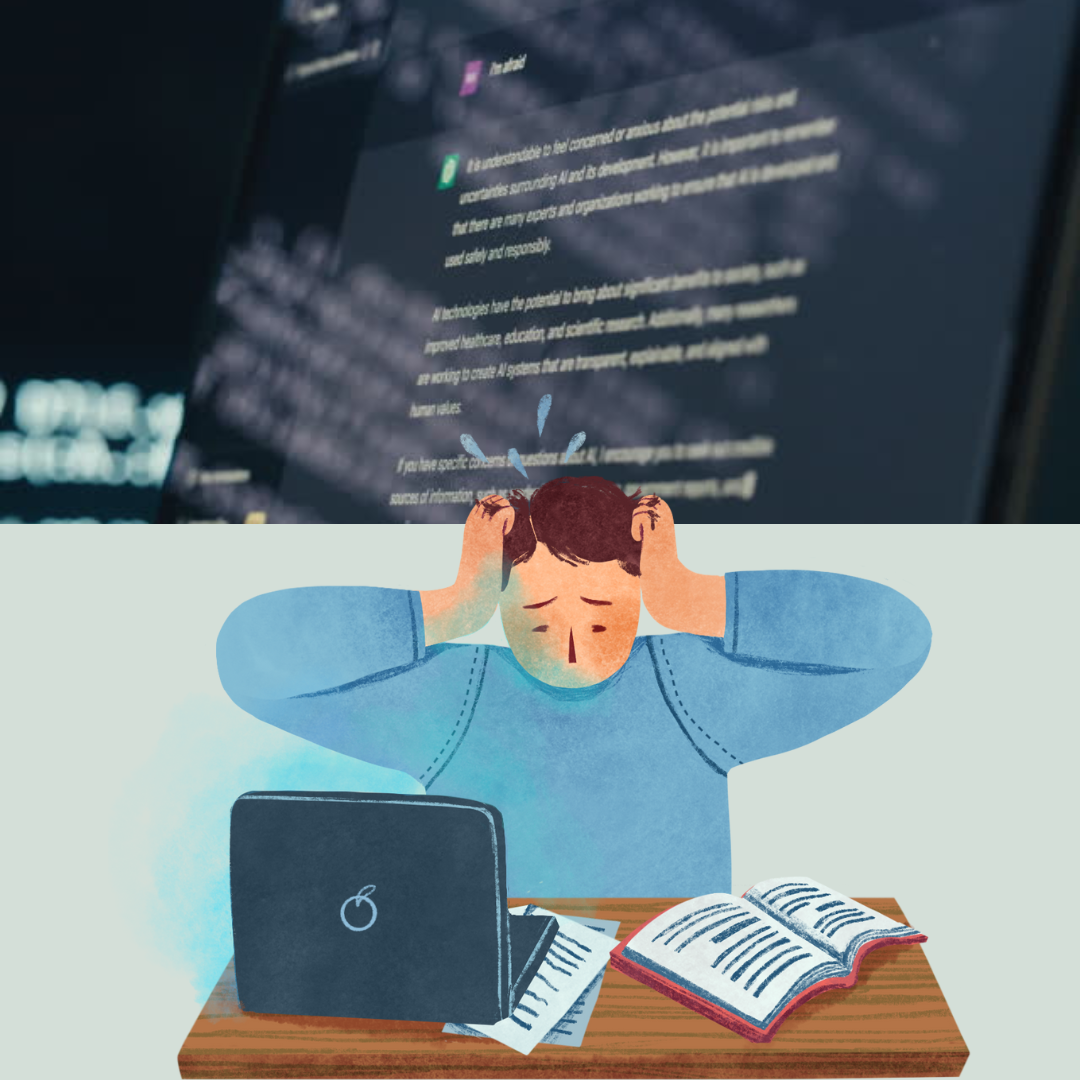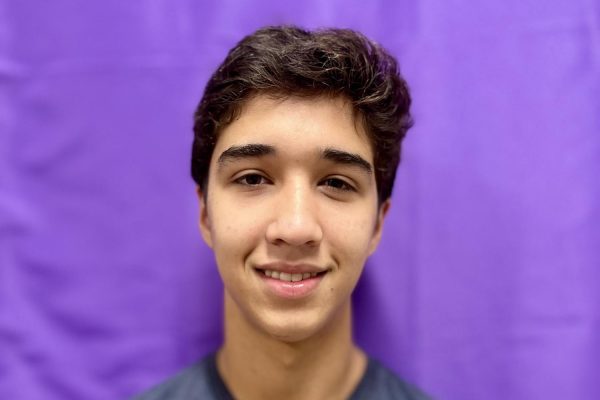When an assignment’s deadline is fast approaching and a student is at the end of his rope, the allure of simply turning to a generative AI like ChatGPT for help is undeniable. Say, for instance, a frantic writer was out of time to write his article and, looking for a start, prompted ChatGPT to “Write a paragraph explaining the history of AI and ChatGPT. This paragraph will be the start of a newspaper article.”
In response, it produced: “In the ever-evolving landscape of technological innovation, the history of artificial intelligence (AI) has been a remarkable journey marked by continuous advancements. AI, conceived as a concept in the mid-20th century, gained prominence with pioneers like Alan Turing laying the groundwork for machine intelligence. Over the decades, AI witnessed periods of both enthusiasm and skepticism. Breakthroughs in machine learning and neural networks rejuvenated interest in the 21st century, leading to the development of powerful language models such as ChatGPT. Created by OpenAI, ChatGPT represents a milestone in natural language processing, leveraging the GPT-3.5 architecture to comprehend and generate human-like text. With its ability to understand context, respond coherently, and undertake diverse language tasks, ChatGPT embodies the cutting edge of conversational AI, reshaping the way we interact with technology.”
Imagine if this article had started with that AI-written paragraph. It would have lost its appeal to readers. The paragraph, albeit comprehensive, is too technical and lacks syntactic refinement. It was, however, written in moments, saving both time and energy. Rest assured, the rest of this article is the work of the named writer and editors, but the above paragraph should certainly not be credited to the person who wrote the prompt. Anybody can come up with an idea. It is the willingness to pursue an idea that sets people apart, and that is where much of the controversy around AI lies.
Talk of AI has accelerated since the release of ChatGPT on November 30, 2022. It has since been adopted by students, teachers, artists, writers, programmers, and other professionals around the world, which raises the question: In what ways should AI be restricted? Interviews with a handful of Paschal’s teachers reveal their thoughts, feelings, and concerns in the face of AI’s emergence.
Mr. Andrew Davila, an art teacher at Paschal
Mr. Davila has used an AI image generator to gauge its capabilities in his spare time. He finds the use of AI to be problematic because, as he put it, “We are not learning how to formulate our own thoughts.” He connected it to one of the pieces he teaches in AP Art History, a portrait of Sor Juana Inés de la Cruz by Miguel Cabrera, saying, “Her intellect was shown in, not that she was just reading, but she was writing. She was thinking, and she was taking those thoughts and compiling them and putting them out there. In the classroom, if we’re not actually producing on our own, from within our own brains and our skill set, we’re not necessarily practicing and using our intellect that I think everybody has in some capacity. We can consume all we want, but it doesn’t change your world unless you think about it and create something else from it.”
Mr. Davila does, however, see how AI can be used beneficially as a jumping-off point that can speed up the creative process. “I think there are ways to use it that can be helpful, but it’s a slippery slope as far as it being abused.” Using AI may be helpful to start, but ultimately, an artist must come up with original work, or he can never hope to develop his own style.
Mr. Davin Haley, a science teacher at Paschal
Mr. Haley has likewise used AI, or more specifically, ChatGPT, to see what it can produce. He said right off the bat that AI is going to complicate matters. He then related his stance on AI, saying, “It could help you generate certain ideas and things like that, but it’s always going to need to be edited because it’s just compiling everything it scans. I am a little worried about AI in terms of copyright and certain things that are getting fed into the system, probably without users’ permission, and I think that they don’t really care.”
He went on to talk about the implications for jobs, and how AI is already being used for simple tasks. “We’re going to see those menial jobs related to coding that generally pay pretty decent are going to be gone before too long.” He cited careers in accounting, which require number-crunching, and the fact that AI can perform them more efficiently. “We’re going to see a reduction of jobs in the workforce, and that’s going to be very interesting to see because typically, with innovation, we’ve seen it hit more blue-collar jobs and things like that. But this is going to hit a lot of those white-collar jobs. It’s going to be really interesting to see what that response is.”
Regarding school, Mr. Haley believes that teachers and students will all be using AI in some way. He said it can be beneficial for helping students get started down a road or discover what knowledge is out there. Unfortunately, it is often abused by students who use it for everything. Because of that, he said that teachers can no longer ask for things like summaries of passages, as students can and will get that from AI. Teachers must be more creative when assigning readings, like asking students for a deeper, more personal analysis. “Usually, if you’re having students read, there’s some kind of importance. You’re trying to get them to get something out of it.”
He explained his concern that people may no longer take in what is important when reading, and posed the question, “Are [people] just diverging further and further to this point that we have kind of an unthinking or menial population that isn’t going to be able to deal with problems in the future?” What will happen if people come to rely on AI too much?
Ms. Terry Buckner, Paschal’s journalism teachers
Ms. Buckner shared her stance on AI, and she also has used AI out of curiosity outside of work. She believes using AI to write falls into a unique category of inauthentic writing, separate from plagiarism. She also thinks society has been leading up to using AI for a long time, citing spell-checking programs and the ability to quickly get help from a search engine. She said that AI is a progression of all of that, and so we will all eventually be using AI.
Because of that, she said, “We have to learn to use AI properly so that we drive the bus. That we use AI to help us, but not to replace us. That we use AI to enhance some of the work we do. Maybe to do some of the repetitive work.”
She then talked about how journalists have already been diminished by previous technological advances; namely, the prevalence of news posted on social media by amateurs. Although she could see AI being used for quick news stories, she said, “The reporter could go out and do the real interviews, the deep-dive, and produce a well-written article. (. . .) The really thoughtful, well-written articles that journalists can produce, I think those will only come from a person. (. . .) It will be more apparent when someone has spent time really doing the digging, really getting the information that people need for a story. Especially if the story has any emotional leanings.” Essentially, there is still a place for journalists and editors in the present.
Ms. Laura Green, Paschal’s AP English Literature teacher
Ms. Green shared her take on AI as well. “I feel like the use of AI limits people from using their own critical thinking skills and their own writing skills and their own creative skills, but I can also see where it might have its place. I’ve seen lots of entertaining things created by AI, and if they’re created just for entertainment purposes, I guess there’s probably no harm in it.”
Like Mr. Davila, however, Ms. Green said that the use of AI is a slippery slope. Next year is to bring about its own set of challenges, as the AP test for English Literature is going digital. Students will be typing their essays instead of handwriting them. “I’m going to have to figure out how to make sure that they’re typing their own essays. When they take the AP test, there’ll be a locked-down browser, and they won’t be able to go and search the internet, but in the classroom, we won’t have that kind of power, so I will have to more closely monitor what students are doing.” This reflects the concerns that many teachers are having. How can they ensure academic integrity? Cheating is not new to high school, but AI opens an entirely new playing field.
Despite the controversy, teachers are finding ways to use AI to their benefit. Ms. Green noted that some have used it to create multiple-choice questions and sample essays. Ms. Buckner said that teachers, who already have so much on their plates, have used AI to assist in creating lesson plans.
Ms. Dawn Bruns, Paschal’s AP Macroeconomics teacher
Ms. Bruns has used ChatGPT sparingly as an aid, and said, “AI can be a great tool. I feel like it can be abused, but I think if people use it responsibly, then it can be extremely beneficial. It’s helped me be more efficient and it’s also even helped me to generate ideas. (. . .) Things that I wouldn’t have thought of on my own. So I’m pro-AI, as long as it’s used responsibly.”
She talked about how she has used AI in the past to assist in giving her an idea. “And sometimes I like that idea, and I can run with it and tweak it to make it how I want. Sometimes it may not be exactly what I want, but if you change your wording in your prompt, you can get different ideas. So I’ve never used what pops out of AI and just used it without tweaking it at all, but I feel like it can help me be a better teacher.”
Ms. Bruns’s words exemplify the advancements that AI is ushering in. People can do what they need to do better and more efficiently. They can cut out the menial parts and get straight to the heart of their tasks. Many fields anticipate the new potential for efficiency. For example, Ms. Bruns said that AI is expectantly awaited in the field of economics, where speed and efficiency are desired.
Much that has made our lives more efficient was at first loathed. The telephone was seen as a frivolous item of no merit. The Industrial Revolution, which built our modern world, was resisted in its time. It initially brought about terrible conditions for its workers, but after reforms and improvements, the world was better than before. AI is beginning to make an impact, and only time will tell just how great that impact will be. Humanity will have to adapt to this new technology, as it has to technologies in the past, and refine it so that it helps rather than hinders. Just as machines and automation swept away the agrarian world of the past, AI is now sweeping the globe, and with it, a new era begins.





